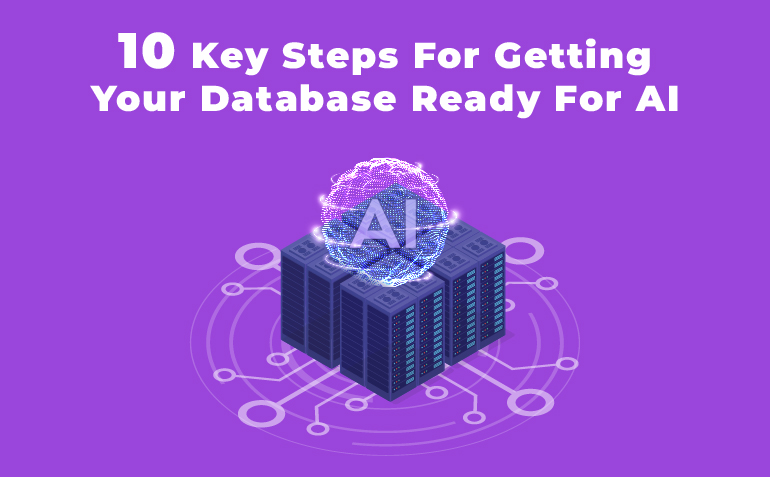We have found that companies can significantly boost their chances of successfully integrating AI by following these 10 steps. Please note that these steps are general guidelines, and specific applications need to be thoroughly discussed. If you need assistance, let us know. We’d be happy to share our expertise.
- Data Inventory and Assessment: Conduct a comprehensive inventory of all data sources, including databases, files, and data warehouses. Assess the quality, completeness, and consistency of the data in each source.
- Data Integration and Standardization: Integrate data from different sources to create a unified view of the organization’s data landscape. Standardize data formats, naming conventions, and data dictionaries to ensure consistency and compatibility across datasets.
- Data Cleaning and Preprocessing: Cleanse and preprocess the data to remove inconsistencies, errors, duplicates, and missing values. This ensures that the data is accurate, reliable, and suitable for analysis.
- Data Security and Compliance: Does all data need to be imported into AI, should it all be imported? Implement robust data security measures to protect sensitive information and ensure compliance with relevant regulations such as GDPR, HIPAA, or industry-specific standards. Establish access controls and encryption mechanisms to safeguard data privacy and integrity.
- Data Governance Framework: Establish a data governance framework to define policies, procedures, and responsibilities for managing and governing data assets. This includes data stewardship, metadata management, and data lineage tracking to ensure accountability and transparency.
- Data Storage and Infrastructure: Evaluate the scalability, performance, and cost-effectiveness of existing data storage and infrastructure solutions. Consider migrating to cloud-based platforms or implementing data lakes to accommodate growing volumes of data and enable flexible analytics capabilities.
- AI Readiness Assessment: Assess the organization’s readiness and maturity level for implementing AI solutions. Evaluate factors such as data readiness, technological capabilities, organizational culture, and leadership support.
- Skills and Training: Invest in training and upskilling employees to develop the necessary skills and expertise in data science, machine learning, and AI technologies. Encourage a culture of continuous learning and experimentation to foster innovation and adoption of AI-driven insights.
- Pilot Projects and Proof of Concepts: Test first with smaller datasets. Start with small-scale pilot projects or proof of concepts to demonstrate the value and feasibility of AI applications. Identify specific use cases or business problems where AI can provide tangible benefits and measurable outcomes.
- Collaboration with AI Experts: Collaborate with AI experts, data scientists, and technology partners to leverage their domain knowledge and technical expertise in implementing AI solutions. Consider outsourcing certain aspects of AI development or consulting services to accelerate the implementation process.
The Role of Data Quality for AI
The importance of data quality for AI cannot be overstated. Data forms the foundation for every AI initiative, influencing the accuracy and effectiveness of its decisions and predictions. It’s not just about quantity; quality is crucial in shaping intelligence.
AI models require meticulous training with high-quality data, much like ensuring a clear lens for accurate vision. Poor or inaccurate data can compromise an AI’s ability to understand and respond effectively.
When it comes to data quality, precision, reliability, and relevance are essential. Just as a reliable compass guides a traveler, high-quality data steers AI models. Ensuring data quality involves using robust data cleaning techniques to maintain accuracy and reliability. The success of AI implementation depends on the quality of data, enhancing AI accuracy, and optimizing outcomes.
Unleash the Power of Speed, Stability, and Safety
Take the first step towards unlocking the full potential of AI for your business. Contact us today and let’s discuss how our data-first approach and experience can make AI not just a possibility, but a powerful asset for your organization.


